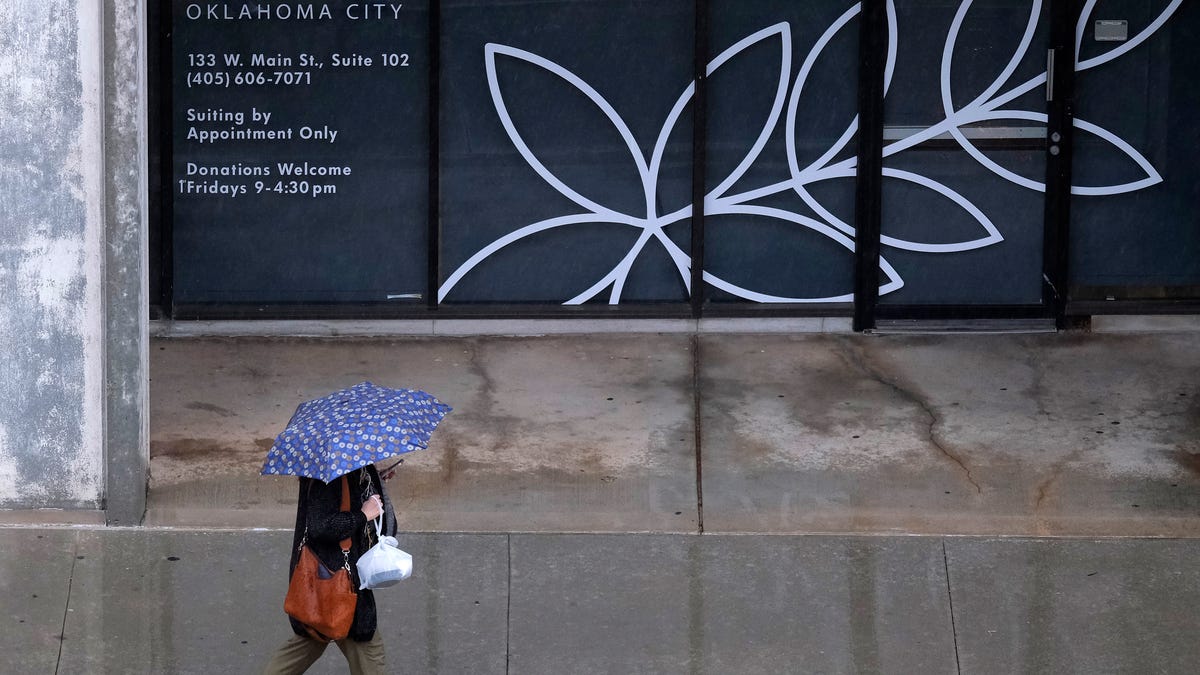World
Columbia University leaders face scrutiny over anti-Semitism on campus
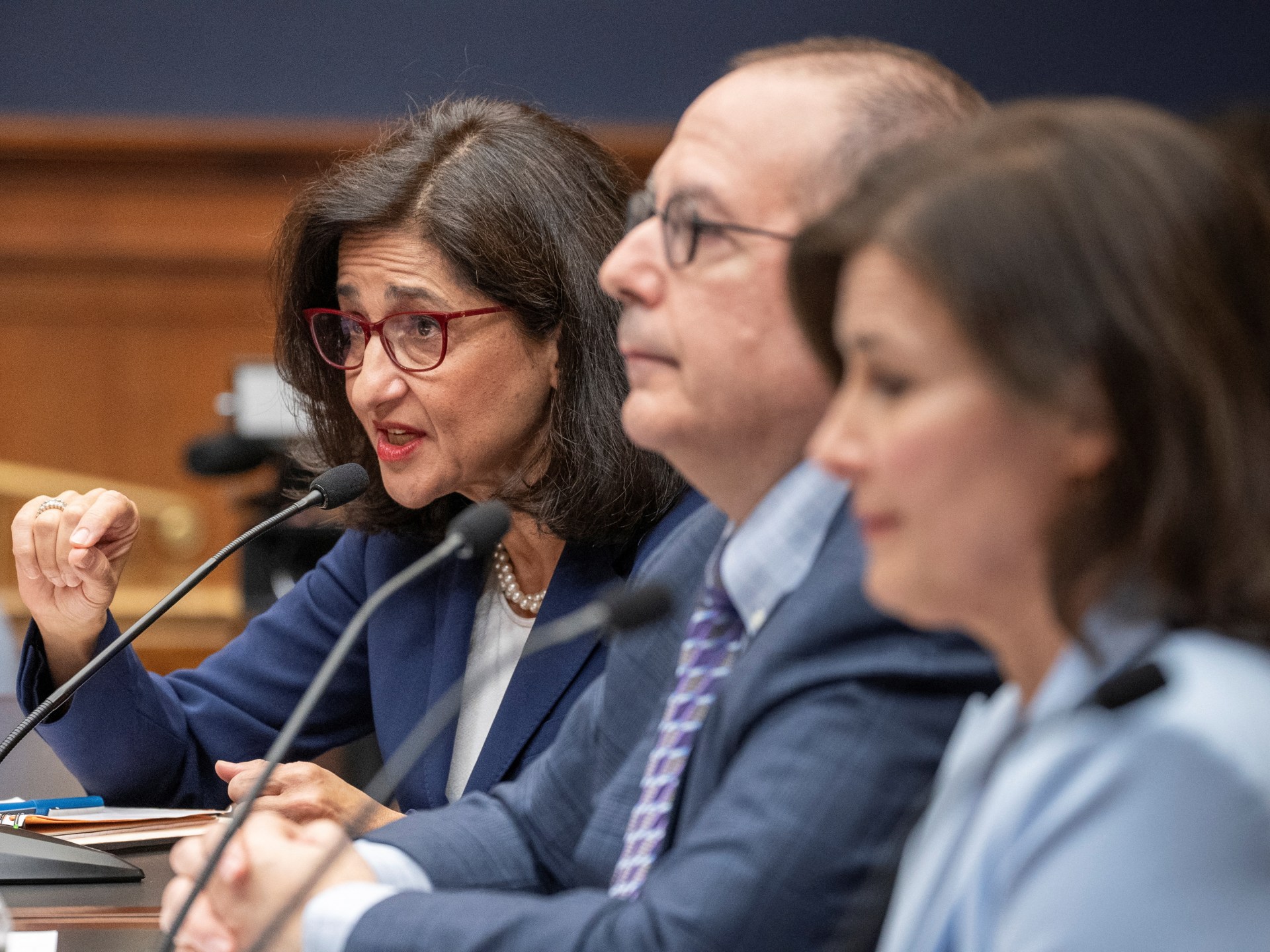
Leaders from Columbia University have appeared before a committee in the United States Congress to face questions about alleged instances of anti-Semitism on campus.
The hearing was a sequel of sorts to a similar panel held in December, featuring the presidents of Harvard, the University of Pennsylvania and the Massachusetts Institute of Technology (MIT).
But on Wednesday, Columbia University President Nemat “Minouche” Shafik sought to avoid the same pitfalls that made the previous hearing go viral.
She pledged firm action to combat anti-Semitism, even engaging in discussions about specific Columbia professors and disciplinary measures during the hearing.
“We have already suspended 15 students from Columbia. We have six on disciplinary probation,” Shafik said, laying out her actions before the Committee on Education and the Workforce, part of the House of Representatives.
“These are more disciplinary actions that have been taken probably in the last decade at Columbia. And I promise you, from the messages I’m hearing from students, they are getting the message that violations of our policies will have consequences.”
Still, Republicans on the committee sought to hold Columbia University to account for what they considered failures since the start of the war in Gaza on October 7.
On that date, the Palestinian group Hamas attacked southern Israel, killing upwards of 1,000 people. In the subsequent war, Israeli attacks in Gaza killed more than 33,800 Palestinians, prompting widespread protest.
Like many college campuses, Columbia University has been a centre for student activism in the months since, with demonstrators rallying both in support of the war and against it.
But the university has drawn particular scrutiny, given its prominence as a prestigious Ivy League school and its attempts to crack down on unauthorised gatherings.
Some critics have argued that the suspension of pro-Palestinian students and groups has put a damper on free speech on campus, while others allege the administration has allowed a hostile atmosphere to thrive.
Partisan divide over campus activity
Committee chair Virginia Foxx opened Wednesday’s hearing with a statement championing the view that campus administrators have failed to create a safe learning environment for Jewish students.
She pointed to pro-Palestinian activism as evidence that Columbia and other campuses “have erupted into hotbeds of anti-Semitism and hate”.
“Columbia stands guilty of gross negligence at best — and at worst has become a platform for those supporting terrorism and violence against the Jewish people,” she said in prepared remarks.
Her statement referenced an incident on October 11 when an Israeli student was allegedly beaten with a stick while hanging posters of the captives taken by Hamas.
But at several points during the hearing, representatives took to the microphone to point out that anti-Semitism was part of a wider problem of discrimination and hate in the US.
“Anti-Semitism is not the only form of hatred rising in our schools. It’s not the only form of hatred that is impacting our children’s or students’ ability to learn,” Representative Teresa Leger Fernandez, a Democrat, said from her seat on the committee.
“Islamophobia and hate crimes against LGBTQ students have also recently spiked. They’ve led to deaths by suicide, harassment. But this committee has not held a single hearing on these issues.”
Meanwhile, Representative Ilhan Omar, a prominent progressive voice in the House, sought to dispel any conflation of antiwar protests with anti-Jewish hate.
“Have you seen a protest saying, ‘We are against Jewish people’?” Omar asked Columbia President Shafik, who answered, “No.”
Omar continued by highlighting the case of pro-Palestinian students being sprayed with a foul-smelling chemical at Columbia and being “harassed and intimidated” in other instances.
“There has been a recent attack on the democratic rights of students across the country,” she said.
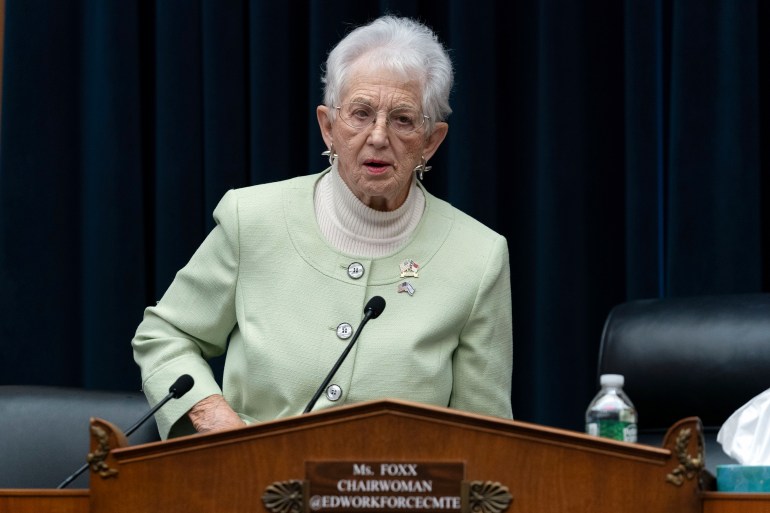
Controversy looms over hearing
Shafik sought to walk a fine line during the hearing, pledging swift and decisive action against anti-Semitism while underscoring her campus’s commitment to free speech.
She was joined by Claire Shipman and David Greenwald, from Columbia’s board of trustees, as well as David Schizer, a member of the campus task force against anti-Semitism.
But looming over the proceedings was the spectre of December’s hearing, which led to the resignations of two university presidents.
On December 5, Claudine Gay of Harvard, Liz Magill of the University of Pennsylvania and Sally Kornbluth of MIT faced the same committee for questions about anti-Semitism on their campuses.
During the meeting, Republican Representative Elise Stefanik pressed the university presidents to explain — with simple, yes-or-no answers — whether “calling for the genocide of Jews” would violate their campus codes of conduct.
In each case, the university presidents sought to differentiate between protected speech and harassment, leading to convoluted answers.
“If the speech turns into conduct, it can be harassment, yes,” Magill said. She later added: “It is a context-dependent decision, Congresswoman.”
Clips of the hearing went viral shortly thereafter, with politicians on both sides of the aisle slamming the university presidents for failing to make a forceful denunciation of anti-Semitism and genocide.
Magill resigned four days after the hearing, as the public outrage grew. Gay — Harvard’s first Black president — also stepped down in January, facing pressure not only over the hearing but also over questions of plagiarism.
Those events cast a shadow over Wednesday’s panel, and several representatives made direct references to them.
Republican Representative Aaron Bean, for instance, applauded Columbia’s administrators for giving more forthright answers than their counterparts at Harvard and the University of Pennsylvania.
“Y’all have done something that they weren’t able to do: You’ve been able to condemn anti-Semitism without using the phrase, ‘It depends on the context,’” he said.
“But the problem is: Action on campus doesn’t match your rhetoric today.”
A standard approach to hate
On Wednesday, Shafik and the Columbia administrators were also pressed over many of the same issues as their colleagues from Harvard, MIT and the University of Pennsylvania.
Republicans on the committee asked them to weigh in on chants like, “From the river to the sea, Palestine will be free”. While some consider the chant anti-Semitic, others see it simply as a call for Palestinian statehood.
“I have received letters from our Jewish faculty who say they also don’t think it is anti-Semitic,” Shafik said at one point during the hearing.
But she also explained that she personally felt that language was “incredibly hurtful”.
One recommendation she said the campus was considering would create specific spaces for that kind of protest.
“If you are going to chant, it should only be in a certain place, so people who don’t want to hear it are protected from having to hear it,” Shafik said, relaying the idea.
Schizer, meanwhile, indicated that he advocated for a standard approach to hate and harassment, no matter who was being targeted.
“I’m a conservative. I’m close to many conservative students. There have been times they’ve gotten the signal that they should really go slow on a particular event or not articulate a particular position because it makes others feel uncomfortable,” Schizer said.
“And it’s striking how that kind of language has not been applied to Jewish students. When Jewish students have said, ‘We feel uncomfortable,’ the emphasis has been: ‘No, no, no, free speech.’”
“Now I want to be clear: I think free speech is essential, but I also think consistency is essential. We need to have the same approach for everyone.”
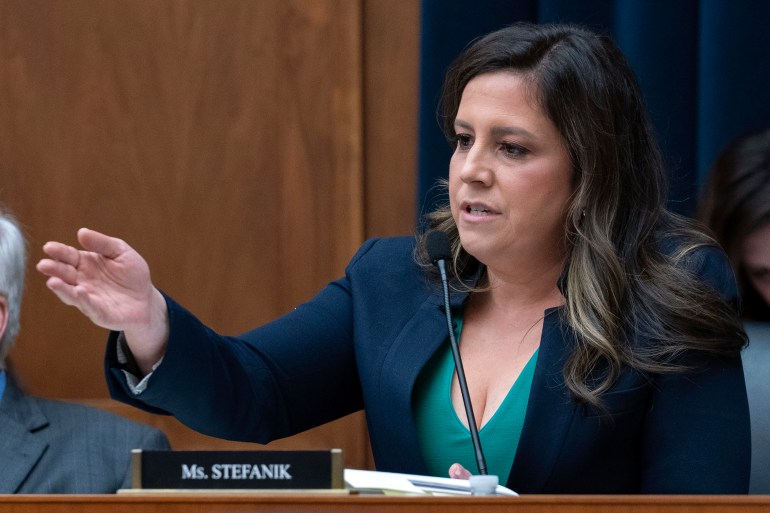
Professors under fire
Some of the fiercest criticism, however, ultimately fell to Columbia professors who were not present at the hearing.
Committee members cited statements from professors like Joseph Massad, Mohamed Abdou and Katherine Franke as evidence of bias and discrimination among the Columbia faculty.
“We have 4,700 faculty at Columbia, most of whom spend all of their time dedicated to teaching their students,” Shafik said at one point, as she defended her hiring practices.
“I have five cases at the moment who have either been taken out of the classroom or dismissed.”
In the case of Abdou, a visiting professor, Stefanik confronted Shafik with a post he wrote on social media on October 11, saying he was “with Hamas”.
“He will never work at Columbia again,” Shafik responded. “He has been terminated. And not just terminated, but his files will show that he will never work at Columbia again.”
Massad, meanwhile, came under fire for an article he wrote in the publication Electronic Antifada, describing the October 7 attack as an act of “innovative Palestinian resistance”.
“Mr Massad is under investigation,” Shafik said, adding that she believed the professor had been removed from a leadership role within the university.

World
Most Americans See TikTok as a Chinese Influence Tool, Reuters/Ipsos Poll Finds
World
Biden admin sanction waivers give Iran access to billions in funds to keep war efforts going, expert says
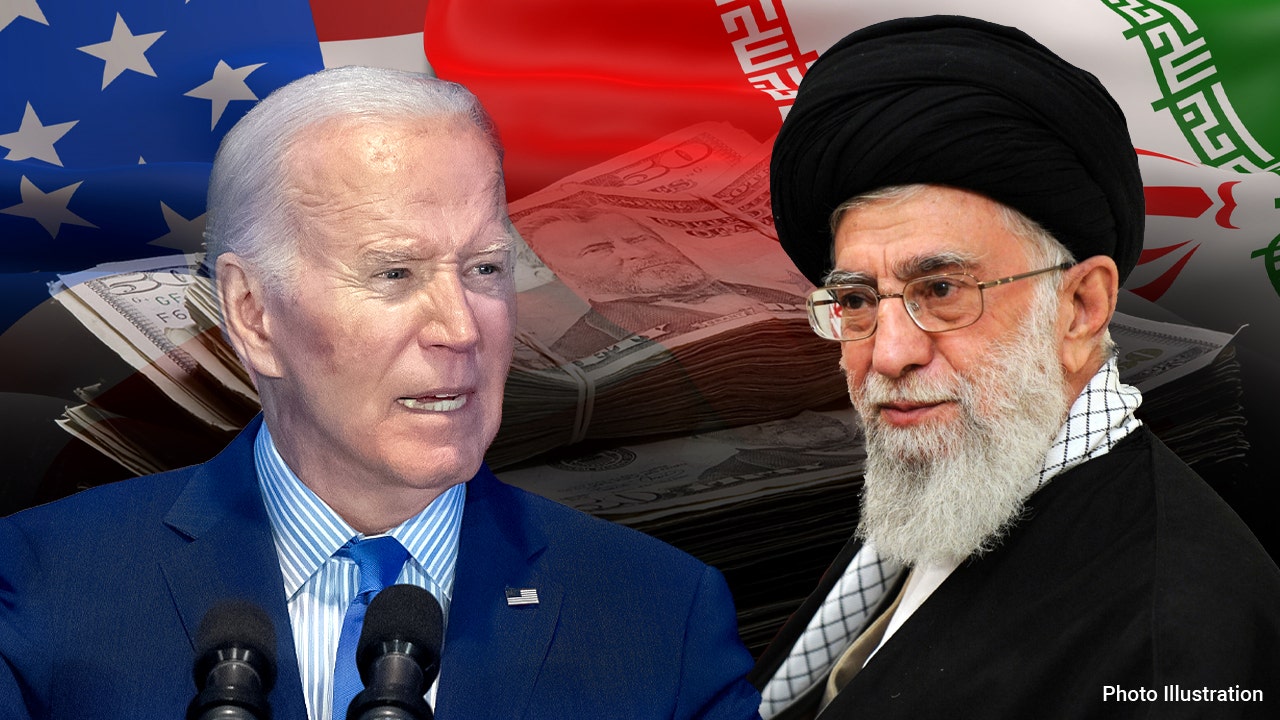
The Biden administration has allowed billions in sanctions waivers that benefit Iran, with estimated billions more in unsanctioned oil sales, which allows the Iranian government to continue diverting money to its drone factories and funding proxy groups, an expert told Fox News Digital.
“What happens when you end up releasing that money is that it goes into the general funds, which can then be used in lots of different ways,” Jonathan Schanzer, senior vice president for research at the Foundation for Defense of Democracies (FDD), explained.
“If they are using the sanctions relief to fund their general budget, then ultimately [they] are to the benefit of the IRGC because the IRGC partakes in that regular budget,” Schanzer said, noting the Biden administration has often argued that any waivers do not ultimately and directly benefit the Iranian military and the Islamic Revolutionary Guard Corps (IRGC).
“Let me put it this way: There is no way to do it without ultimately benefiting the regime and its ultimate objective, which is to fund its malign activities abroad,” Schanzer, a former terrorism finance analyst at the U.S. Department of the Treasury noted.
TEHRAN ‘RELIGIOUSLY’ BROADCASTING ANTI-ISRAEL UNREST AT US SCHOOLS FOR PROPAGANDA, EXPERT SAYS
A State Department spokesperson told Fox News Digital that the Biden administration “has not lifted a single sanction on Iran. Rather, we continue to increase pressure.”
“Our extensive sanctions on Iran remain in place, and we continue to enforce them,” the spokesperson said. “Over the last three years, the U.S. has sanctioned over 600 individuals and entities connected to the full range of Iran’s problematic and dangerous behaviors, UAV and missile proliferation, terrorism, terrorist financing and other forms of illicit trade, horrific human rights abuses and support for proxy terrorist groups.”
President Biden, left, and Iranian Supreme Leader Ayatollah Ali Khamenei. (Getty Images)
“We have even seen the regime fail to meet its own revenue expectations as it struggles to evade our sanctions and find illicit buyers for its oil,” the spokesperson said, not commenting on the fact Iran does find buyers for its oil. The spokesperson insisted that the U.S. sanctions, in combination with “Iran’s economy and regime mismanagement,” have brought the country’s currency “to the lowest it has ever been against the U.S. dollar.”
A second State Department spokesperson reiterated the fact that the sanctions waiver allowing Iraq to buy electricity from Iran has been renewed 21 times since the Trump administration first issued the waiver in 2018 and that “any notion” that money goes to Iran due to the waivers “is false and misleading.”
THERE IS ‘NO DOUBT’ THAT ANTI-ISRAEL PROTESTS ARE ‘HIGHLY COORDINATED’ ACROSS SENIOR LEVELS IN US: MIKE POMPEO
“We have been in ongoing engagement with allies and partners, including at the G-7 and with the EU, on ways to increase pressure on Iran,” the second spokesperson said.
A Fox News Digital analysis, in combination with the FDD’s research, determined that Iran has received between $16 billion and $20 billion in sanctions waivers, with billions more gained through the sale of Iranian oil, which the U.S. has sanctioned but has not managed to totally prevent due to a mixture of lax government oversight and more sophisticated evasion methods.

Islamic Revolutionary Guard Corps military personnel are walking along Enghelab (Revolution) Avenue as an Iranian Kheibar Surface-to-Surface missile is being unveiled during the Ela Beit Al-Moghaddas (Al-Aqsa Mosque) military rally in Tehran, Iran, on Nov. 24, 2023. (Morteza Nikoubazl/NurPhoto via Getty Images)
That includes a $10 billion sanctions waiver so Iraq can trade to obtain electricity from Iran, a $6 billion sanctions waiver agreed for South Korea to transfer money in exchange for the release of five Americans and $3.8 billion gained through the sale of petrochemicals in order to dodge a Trump-era sanction.
The U.S. State Department in March came under fire for resuming a sanctions waiver, which had been renewed since the Trump administration first issued the waiver in 2018. Some experts estimated the waiver as having a valuation of around $10 billion for Iran.
IRAN COURT SENTENCES POPULAR RAPPER TO DEATH FOR INVOLVEMENT IN PROTESTS, LAWYER SAYS
That waiver particularly allowed for the transfer of funds between Iran and Iraq so that Iraq, which remains a U.S. ally, could continue to use electricity imported from Iran – but critics saw it merely as another easement on sanctions against Iran.
“None of this money goes to the mullahs. None of this money goes into Tehran. The sanctions relief that is provided actually goes to vendors that provide humanitarian assistance to the Iranian people,” White House national security advisor John Kirby told reporters at the time.

This file handout picture provided by Hezbollah’s media office on Sept. 2, 2023 shows the Lebanese Shiite group’s Secretary General Hassan Nasrallah, left, during a meeting with the deputy chief of the Palestinian Hamas movement, Saleh al-Aruri, at an undisclosed location in Lebanon. (Hezbollah’s Media Office/AFP via Getty Images)
“Not only do the Iraqi people not suffer because of this, the Iranian people aren’t going to suffer because of this,” Kirby added. “That allows for Iraq to be able to work its way off of Iranian energy so that they can keep the lights on.”
Schanzer countered the administration’s argument by noting that “as soon as [money] hits the system, it is going to be diverted or used in a cynical way,” even taking what humanitarian aid gets into the country through third-party vendors and reselling it to the civilian population, effectively laundering the assistance into money.
IRAN REJECTS ARGENTINA’S PUSH TO ARREST INTERIOR MINISTER FOR 1994 JEWISH CENTER BOMBING
“When we talk about dual-use goods or even things that they need in order to feed their fighters things along those lines, it is a consistently cynical diversion scheme,” Schanzer said. “Whether we’re talking about Iran itself or we’re talking about Iran’s proxies.”
“When the administration was saying that we shouldn’t be putting sanctions on the Houthis because it would ultimately block humanitarian assistance from getting into Yemen – guess what?” Schanzer continued. “When that humanitarian assistance gets to Yemen, who benefits? The people that control the territory in question, which right now a large chunk of Yemen is controlled by the Houthis.”

Houthi supporters attend a rally in Sanaa, Yemen, on March 8. (AP/Osamah Abdulrahman)
The New York Times in February published the results of an investigation that determined Iran had managed to sell “oil worth billions of dollars” thanks to “a significant gap in U.S. oversight.” Shipping vessels owned by shell companies and using “spoofing” methods to hide their location made dozens of trips throughout 2023 to ferry Iran’s oil under the sanctions.
The lack of a total crackdown on Iran’s oil shipments has led a significant number of experts to argue that the Biden administration may have started willfully turning a blind eye to Iran’s activities – partially since the surge in oil sales is clear and evident.
Javier Blas, a long-time energy and commodities reporter, wrote in a Bloomberg op-ed that “the conspiracy theorist inside me says the White House has turned a blind eye to the Iranian sales because it’s more worried about inflation … not only has Iran boosted oil production, but its exports have surged even more because it’s been able to sell a large chunk of the crude it was forced to put in the past into storage, both onshore and into tankers turned into floating storage facilities.”

A general view of the Port of Kharg Island Oil Terminal, 25 kilometeres from the Iranian coast in the Persian Gulf and 483 kilometers northwest of the Strait of Hormuz, in Iran on March 12, 2017. (Fatemeh Bahrami/Anadolu Agency/Getty Images)
Iran’s growing cooperation with China also plays a significant role in how the country has managed to dodge sanctions, according to Foreign Policy, which cited a 25-year economic cooperation agreement the two countries agreed to in March 2021, as well as Iran’s decision to join the Beijing-led BRICS economic bloc, which gives Iran access to other currencies and trading options.
“There’s no question that Russia, China and others are working to provide assistance to the Iranians,” Schanzer claimed. “We know this to be the case, but, with the Russians and Chinese, it’s often done in trade or in arms purchases, oil … if they get remuneration in rubles or in RMB (Chinese Yuan) in trade surplus where they can cash in for other products that’s not the same as dollars, and it’s not the same as some of the goods that will come through American channels.”
Fox News Digital’s Caitlin McFall contributed to this report.
World
Ireland to begin sending asylum seekers back to the UK 'by end of May'

British Prime Minister Rishi Sunak say the increase in migrant numbers crossing over to Ireland proves that his controversial Rwanda policy is working.
The Irish government has said it is planning to enact legislation by the end of May that would allow it to resume sending asylum seekers who arrive over the border with Northern Ireland back to the United Kingdom.
Justice Minister Helen McEntee said the emergency legislation would allow for faster processing of migrants.
“This has never been a panacea when we talk about returns, the most effective way that we can have an immigration system that’s firm but fair is a fast processing system and what this means is that people’s applications are turned around much more quickly,” she said.
Ireland’s High Court ruled last month that Ireland could not send back people who arrive from the UK seeking asylum because the Irish government had not specified whether they would be at risk after their return.
Taoiseach Simon Harris said the legislation is about giving practical legal meaning to an agreement in place between the UK and Ireland since 2020.
Harris has urged Westminster to stand by the agreement, which allows asylum seekers to be returned in either direction.
Helen McEntee said that Ireland hadn’t returned anyone to the UK since 2020 as the agreement had been suspended during the coronavirus pandemic.
Immigration is an increasingly hot topic in Ireland, where asylum applications have been rising sharply.
British Prime Minister Rishi Sunak claims that the increase in migrants crossing over to Ireland proves that his controversial Rwanda policy, which aims to send some asylum seekers arriving in Britain on a one-way trip to the African country, is working.
Human rights activists and migrants’ groups call the policy unethical, inhumane and costly.
Irish officials estimate that more than 80% of arrivals into Ireland came via the land border with Northern Ireland, which is part of the UK.
-

 Education1 week ago
Education1 week agoVideo: Dozens of Yale Students Arrested as Campus Protests Spread
-

 World1 week ago
World1 week agoEU sanctions extremist Israeli settlers over violence in the West Bank
-

 Politics1 week ago
Politics1 week agoFetterman hammers 'a–hole' anti-Israel protesters, slams own party for response to Iranian attack: 'Crazy'
-

 Politics1 week ago
Politics1 week agoDemocrats hold major 2024 advantage as House Republicans face further chaos, division
-

 World1 week ago
World1 week agoPeriod poverty still a problem within the EU despite tax breaks
-

 Politics1 week ago
Politics1 week agoA battle over 100 words: Judge tentatively siding with California AG over students' gender identification
-

 News1 week ago
News1 week agoUniversal Studios Tram Crashes, 15 Injured, 1 Critical
-

 Movie Reviews1 week ago
Movie Reviews1 week agoShort Film Review: Wooden Toilet (2023) by Zuni Rinpoche





